Joe: Hi my name is Joe Sprung and welcome back to the Never Too Late podcast dedicated to bringing you stories of people just like you and me who prove that it truly is never too late to overcome obstacles in your life. Remember to follow us on Instagram @nevertoolatetostartconference and subscribe so you never miss an episode. We love hearing from you and are always looking for people with incredible stories to feature. If you or anyone you know would like to share your story, contact us on our social media @nevertoolatetostartconference. With me today is Dr. Marcy Borofsky, an impressive dentist and entrepreneur who has helped bring healthy smiles to thousands of people. Marcy co-founded Smile America Partners, now known as Smile Partners, the mobile dentists, with Dr. Margo Woll in 1997. They organized dentists across the nation that travel to perform preventive and even restorative care to children. By having dentists visit children during school hours, they are able to see and treat various children whose parents may not have the time or money to take them to a traditional dentist. Thank you for joining us today Marcy. Why don’t you tell us more about your business and its growth?
Marcy: Well, thank you Joe. I greatly appreciate it. This has been an over 20 year labor of love, and by education I’m a dentist, and I saw an opportunity in 1997, that’s when we started, to provide dental care for those who didn’t traditionally reach dental offices. This would be a surprise to some people but dental needs are the number one healthcare need for children and it is unfortunately stratified by socioeconomic disparity and racial and ethnic minority. Meaning that children who are raised in lower income often have greater dental needs – in fact the US Citizen General has said that 80% of all dental needs occur in the lowest 20% of income stratification in this country. And of course this population doesn’t generally have a lot of dental offices and dental access in the community. So when we started we decided to provide dental care to children in schools, because that’s where the kids are. Traditionally, dentists have been unwilling to accept Medicaid as a form of payment so the irony of this is that most children of low income do have dental coverage. They’re covered under the Medicaid program, yet it’s often been spoken of that it’s a hunting license because it gives you the opportunity to hunt for a dentist and then the dentists don’t accept Medicaid. So in the past, our philosophy was that we go to the schools, and provide dental care for kids with the parents being able to sign up for dental care. Way back when, and I’m from Detroit, we started this in Pontiac, Michigan which has the same demographics of Detroit, and we went to a school and it was like we were sucked into a vacuum of need. Everyone signed up pretty much. The kind of decay we were seeing in children’s mouths was the kind of decay spoken of pre-fluoridated water. And we learned from the very first day till today that there remains a huge amount of need, and the sad part is that dental disease is painful, it disrupts your aesthetic as you look out into the world, it affects learning because children in pain can’t learn. And it is almost 100% preventable. This is a disease that doesn’t have to be here and as I mentioned earlier it is the number one unmet health need. So that is a little bit of a basic problem and from that day until today we have visited over 10,000 schools and we see about 550,000 patients a year in 18 states. I can tell you for as much work as we do we really only touch the surface of the need that exists.
Joe: Wonderful. You founded Smile America Partners in 1997 – what were you doing at that point in your life? Did you always want to be an entrepreneur?
Marcy: So… I would say I didn’t do it to be an entrepreneur. I think in the 24 years since then, being an entrepreneur has become something.… I think when we started this we really started this to fulfill a need. To provide dental care for children at risk in high need. And before that, I’m also a physical therapist. And before that I started a physical therapy clinic. There was a big need for physical therapy at the time when I started – it was only provided in hospitals, and was transitioning to being provided in hospitals to outpatients, clinics and I was part of that movement. So I guess I had already had some experience being entrepreneurial. The term social entrepreneur is out there and I guess I would consider myself more of a social entrepreneur, providing much needed medical and dental services. Rather than creating a widget and making a big sale of widgets nationally and internationally, I just always saw myself as somebody who provided much needed care, so I like the term social entrepreneur better for the work I’m doing. And there exists tremendous need for almost everybody in every profession. You take a look at your profession that you know, you can see where there is a lot of need. There’s always big voids. When we started this for kids in schools we actually thought we would provide dental care for all kinds of underserved populations whether it was seniors or homebound. But once we started, we stayed in the schools, because we really just continued to service the need. So I guess I’m an entrepreneur.
Joe: Ok, I’m very happy that you are!
Marcy: (laughs) Well, thank you
Joe: So how did you start? Where was your first school visit and what did you learn from that first experience?
Marcy: So our first school visit was in a charter school, as I mentioned in Pontiac, Michigan. We had bought a lot of equipment, we had patients sign up, we carried the equipment in the back of a SUV and then by the second day we went out and bought a Ford Econoline van because it was really clear we had to bring a lot of stuff to the school site in order to create a dental office, and that’s what we did. We would create a dental office for the day, so we learned an enormous amount. An enormous amount of how to deliver the service, and we were doing it on a volume basis. There were a lot of kids, and we had to be efficient. We couldn’t take the kids out of school all day. They could go out for a half hour or 45 minutes tops, and we had to return them to their classroom. So, I would say every day we’ve ever run this program we learned something new, particularly in the beginning, we learned a lot. But mostly what we learned was how much need there was. It was incomprehensible for this preventable disease.
Joe: What are some of the other obstacles you faced along the way?
Marcy: So we did face obstacles, some of the unusual ones, I would say is the dentist community wasn’t very happy with us. The dentist community felt we were “stealing their patients.” Interestingly, we always said “how can we be stealing those patients?” They’re not going to that dental office; to take one look in their mouths, for the 99% of the children we had seen, the service we provided at school was the first time that child had ever seen a dentist. So there was some professional jealousy and we always invited them to come join us, come with us, come see the kids, there’s more than anybody could possibly handle. So, there was that situation, and I could actually liken it to what’s going on in the government today. As of yesterday they had the Build Back Better bill of Joe Biden and in that Bill was a potential to provide dental care for the Medicare, senior population and it did not get included. And I can tell you that the American Dental Association lobbied their membership very heavily to not have it passed and it was removed from the Bill which is unfortunate because our senior population, especially seniors of low income, need dental care as well and it’s not being provided and definitely not servicing this population because it’s of course very expensive. So I would say that the professional dentist community seems to always be late to the party to provide access to populations who need it. And I’m very proud to say, we fought against that and did it for the public good and provided care that we knew, in our case, children needed. Eventually the profession went along, but they were slow to the party. They did not recognize it, they did not support it, for quite a number of years in the beginning. So that was probably our biggest obstacle. And the teachers in the schools, on the opposite were just… they knew that there was a huge need for these kids to have dental, and other healthcare services, and they couldn’t have been more supportive, and more helpful in having our dentist team come to their school. So, there is a big need, and we’re happy to do it. But I would not say that the American Dental Association and their constituent societies were supportive early on. They are now but they were not for years.
Joe: Did you have any idea it would grow to serve over 550,000 underserved children in schools across the country? Are you happy with where the company is now?
Marcy: Never in my wildest dreams could I have ever imagined. I’ll give you another statistic. We’ve seen over 10 million children in the course of time we’ve been operating.
Joe: That is amazing.
Marcy: So the statistics, and probably after the pandemic is even higher – there are 40 million children that are on Medicaid, so that’s the measure for low income in this industry, and over 50% of them do not go to the dentist in the course of a year. So I never thought we would have this impact – I’m so proud of the fact we have. And I do think it’s not done; I think that it’s…the impact can always be more and better. This is an important aspect of healthcare a lot of the time. I think our country, our healthcare above the neck, always seems to be a different system. Mental health, eye health, dental health is a different system, definitely different insurance plans and unfortunately the body hasn’t gotten that message. Because when you have an infection in your mouth, there are systemic, or body consequences that happen from having that infection. So, really the mouth does belong as part of the body and it needs to be recognized for that and every year it grows more and more.
Joe: I see you went through a rebrand from Smile America Partners, to Smile Programs…the mobile dentists. What was that process like for you?
Marcy: So um, our company has vied into a professional services corporation because only professional dentists can lead the professional aspect of the company, Smile America Partners is the administrative services organization. For us to get this big, we really did need to professionalize the organizations, and have back office assistance, with administration, with billing, with IT services, with hiring, with scheduling. With you know everyday we go out, the last event is showing up to the school. But before we show up to the school there’s a lot of administrative processing that has to happen in order for the team that is in the school to function efficiently. In terms of the name, we went by a lot of names over the years. Smile America Partners is the overall administrative entity, but we started actually as the Mobile Dentists. That was our first name and the name kind of evolved over time to being-every state has a different professional corporation. But the overall name of the company is Smile America Partners, which I love the name
Joe: It is a great name. How involved with the company are you now? Are you still CEO/Founder?
Marcy: I am not CEO. We do have a CEO of Smile America Partners, so financially when we started the company we started as a dental office that went into schools, and then as things evolved, we separated it off into the professional services organization and an administrative organization. I did sell the administrative organization, which is the Smile America Partners, I’m still involved. I’m still on the board. I’m still an equity owner but most of the equity is in fact owned by outside financial companies. They were those companies that helped give us the financial backing to grow as we have in 18 states and sending out a couple hundred teams of dentists and assistants and hygienists every day. We did need their financial help, to get the vehicles and infrastructure and IT systems. It’s costly and when we grew, we grew quickly and so we did need assistance from financial firms to help us. So that was a learning curve for me, I certainly didn’t know how to do this. I think it’s pretty common for entrepreneurs to have their ideas, but… at a certain point you need the help of the outside financial world, to help you grow in a way that you probably wouldn’t take the risk to grow on your own.
Joe: At the inception, was there anything or anyone that really helped or guided you, at the very beginning. That gave you really the incentive that motivated you to start this. Or was it strictly Marcy Borofksy who decided to do this?
Marcy: I would say… our idea was to fill a vacuum of need, and myself and my co-founder/partner would talk, and say “who’s not getting served”. In my background before that as I mentioned was in physical therapy so people who weren’t being served, are those who have-we thought, (and still true) were people who had mobility issues. You couldn’t get into an office, if you needed a wheelchair, dental offices were pretty small, they’re not very accessible. It’s hard to transfer patients from a seat to a dental chair. Elderly is an issue – we really did focus on the elderly. Many years ago we did meet someone who was a dentist who was doing something like this – he built these huge semi tractor trailers and would provide dental care. We would just seek advice from everybody. You know I think for people who are entrepreneurs the best thing you can do is start talking. You might be afraid that somebody might “steal your idea” however people care and they will share their best learning. So we met this person, who was extremely helpful to us, and really guided us. He said don’t buy these semi trailer trucks, don’t buy trailers it’s too hard, it’s too expensive, you’ve got to park them places, you have to have special drivers, and convinced us not to do it. That was a big shift in what we thought we were going to do. And to really use portable equipment and portable storage methods, like we were big on tackle boxes to take into the site. So, I think when you’re talking to people, people have great advice, some you’ll take and some you won’t take but it is really important to reach out and speak to people and get input from others. So I think that was a very helpful person, and then the school districts were amazing to us. The leadership and superintendents of schools, once they heard what we were doing and they knew the needs of their population. They were very, very, very helpful to us. We were first called mobile dentists and I remember going to a school trade show, and a woman came over, and she said “you need mobile optical, you need mobile dental, mobile hearing, mobile mental health you need mobile everything” because there’s just this tremendous amount of need for children in schools. We always learn from everybody.
Joe: One of the most requested topics we hear from our audience is how to get media attention and get their business out there. I see on your website that you’ve had pretty steady media attention. How do you manage to get valuable media coverage?
Marcy: That is a good question and I can tell you we never paid one dime for media coverage. So early on, somebody wrote an article about us. We were new, we didn’t have a lot of schools, and there was third party authentication once we had an article that was written about us. We took that article, it was a long time ago so we went to- probably Kinkos at the time. Reproduced them as many times as we needed to, got a mailing list of all the schools in the area and then mailed that article to others to let them know what we were doing. But there was nothing more important and more effective than getting the news and of course it’s a little different today with social media. If you’re doing a good job somebody will say something great about you and just use that information and spread it everywhere to get the word out. It was very helpful to do that, it really did help us grow. When people write articles about you or they post pictures; in our case, to this day, we’re often on people’s Instagram accounts, we’ll work at a school, they’ll write out thank you and put up pictures of the kids and we just keep spreading it around. But we don’t pay for it, so I think, in our case, it was more important to not pay for it than to pay for it. It was always information that was from the heart
Joe: Beautiful, yeah.
Marcy: Whether it was in a newspaper article or Facebook post, or an Instagram post, we’ll repost it generally all the time.
Joe: What does it feel like to see your business for what it is today? I mean it must be like the greatest feeling in the world to see how you created something from scratch and see how it’s become such an important facet of children’s health and well being.
Marcy: It’s been terrific. I can tell you it’s been a labor of love. Unfortunately the one thing I could never have imagined seeing is living through this pandemic that we’re living in and I’m sure everybody knows, schools were shut down and it has been a challenge. To re-staff, and re-tool to get back out into schools. That was a very big deal. We lost a lot of staff, people went into offices, people left the workforce, all the stories that you’re hearing in the news certainly affected us as well. So we’re really just getting started again in September and October. But I can tell you, much to our surprise, schools remained extremely supportive, and the parents were still supportive and signing up for the program. Much of the staff has returned, but we don’t have all our staff, so we have had to do a lot of hiring, and a lot of training, and then we have a lot of procedure updates to mitigate the spread of Covid to do the right thing and follow the CDC and OSHA guidelines. I could never have imagined that this would happen either, but we are returning back to providing a lot of care. We’re not 100% there yet but we hope to be. And I hope… You know they keep talking about our pandemic becoming end-demic and I hope that’s true. You know we’re on the precipice of having our 5-11 year olds, and they are our biggest population; the 5-11 year olds get vaccinated so that will continue to make a difference hopefully.
Joe: What advice do you have for anyone who is hesitant to leave their stable jobs for their entrepreneurial dreams, like you have?
Marcy: So good question – I do think if you are the prime breadwinner in your home and your income is really necessary to put food on the table and pay your rent you have to be careful. It’s very hard to just give up your job, give up your support, give up your security. I would recommend that people start it as a side hustle. In the companies that I started, I always started it with a minimum investment, I would say $10,000 to put a number on it. And invest more but invest more from the proceeds of the company. It’s very difficult if everyone relies on you financially to give up that security for your family and start something. I highly recommend starting it as a…you’re going to learn a lot. You have an idea, start as is – if money isn’t an issue that’s a different story but if it is, you want to start up slowly. Learn what you’re going to learn, and until you feel secure enough financially you kind of have to keep your day job I believe, and I would recommend that for people there’s a lot of time in the course of a day and with passion, and doing what you’re going to do you’re going to learn a lot. I once read an article that I actually believe in, and it said the biggest thing to back an entrepreneur, to know if somebody is going to be successful is if they have experience doing it. Whether they were successful or not, the experience of doing it is really, really very important. So I guess for most people I would say start it as a side business first and learn what you can learn. I mean there are situations now, this didn’t exist much when I started, VC funding, Angel Funding, there are people who will do this, and organizations. I actually invest in some of those, and that’s another route but raising funds is also a full time job and I often wonder if raising funds pulls you away from doing whatever it is you’re going to do. So those are two ways that someone can get things started, depending on the financial needs of the entrepreneur who wants to get started.
Joe: Well thank you so much for coming on the show Marcy.
Marcy: Ok!
Joe: It’s always great hearing from entrepreneurs who took a chance, and made it out successfully, because it reminds us that the American Dream is alive and well. More importantly, it reminds us that it’s important to give back. Providing health services to those who would otherwise have a hard time receiving them, is a great mission. Marcy, you have done a great thing with Smile Programs, and I hope your story inspires everybody listening that it’s never too late to help others. Don’t forget to follow us on social media, and check out our website at nevertoolatetostart.org for more information on how you can begin your entrepreneurial journey. Thank you everyone, bye now!
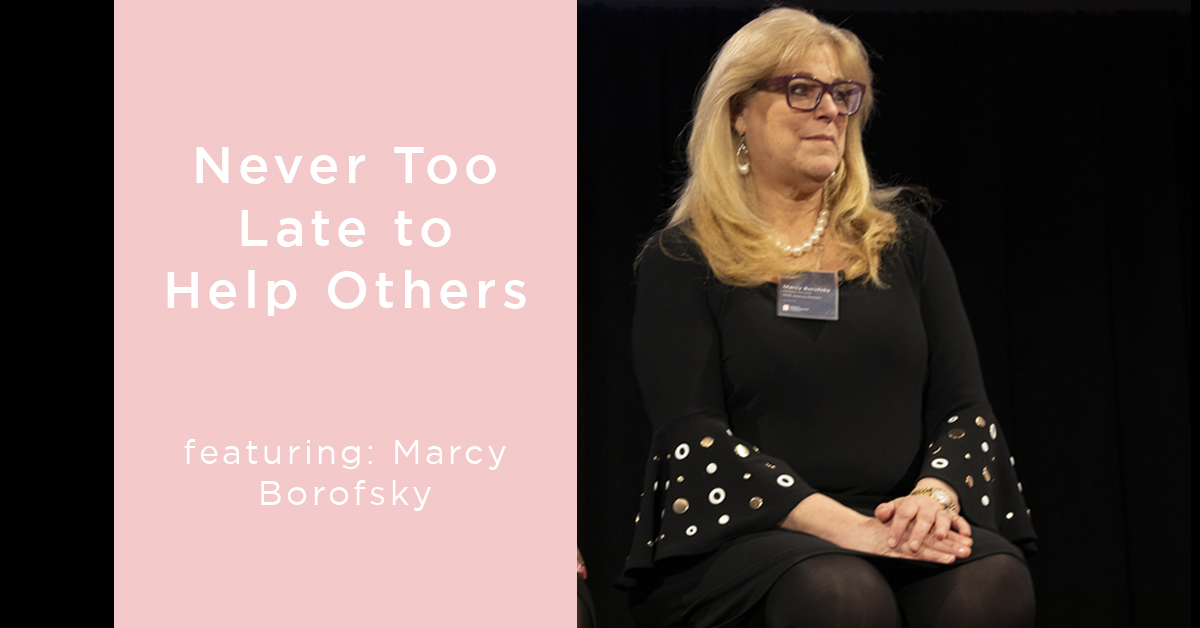
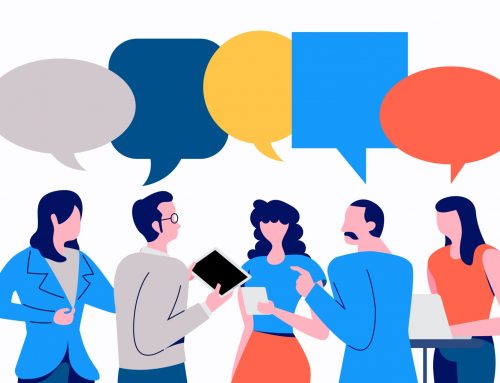
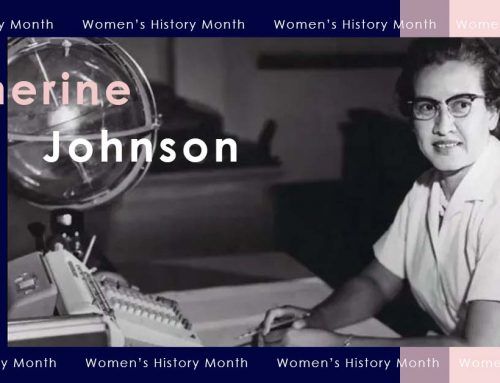
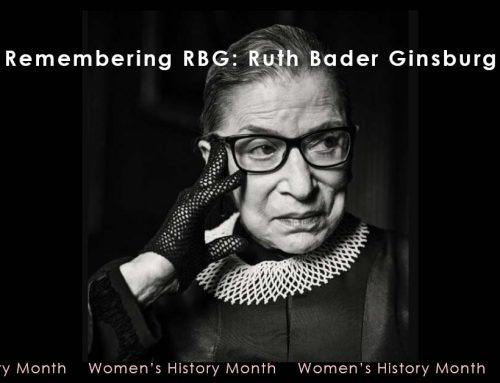
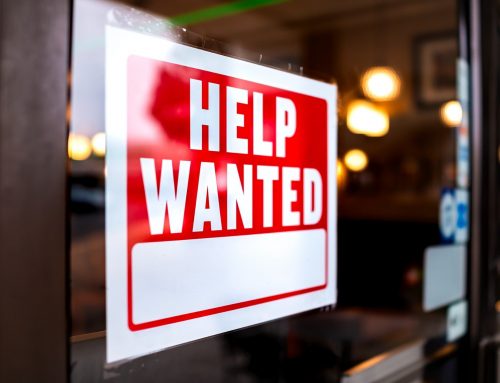
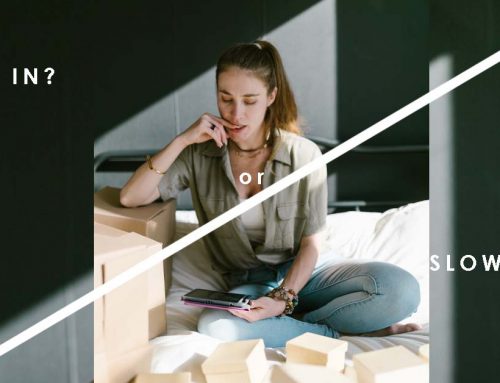
Leave A Comment